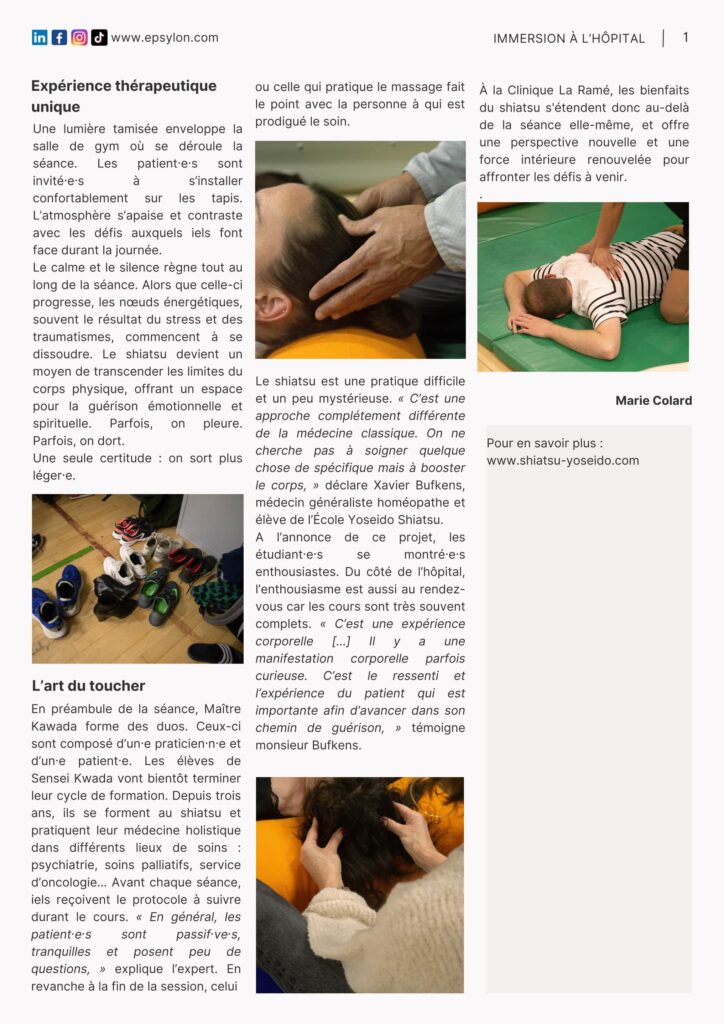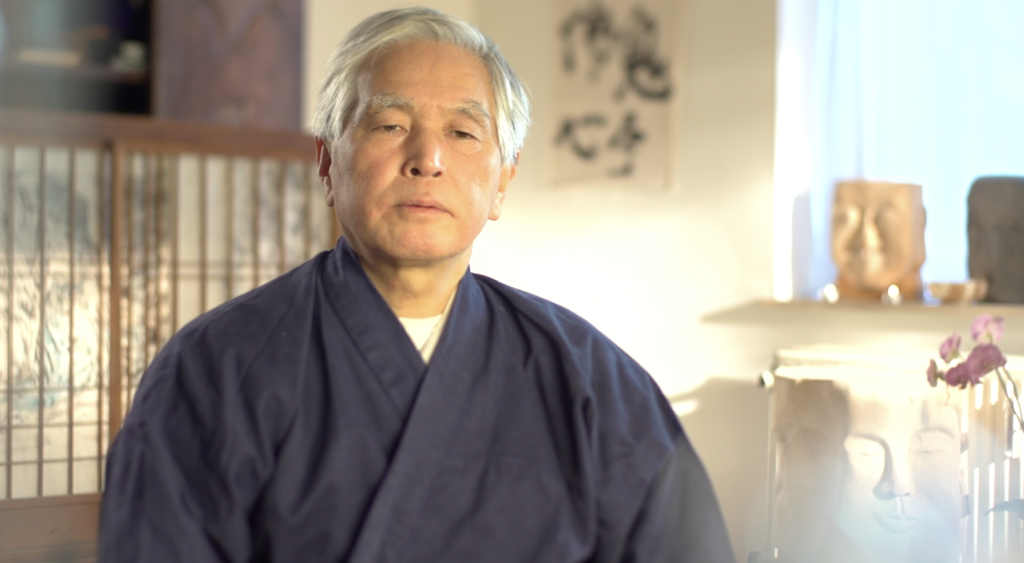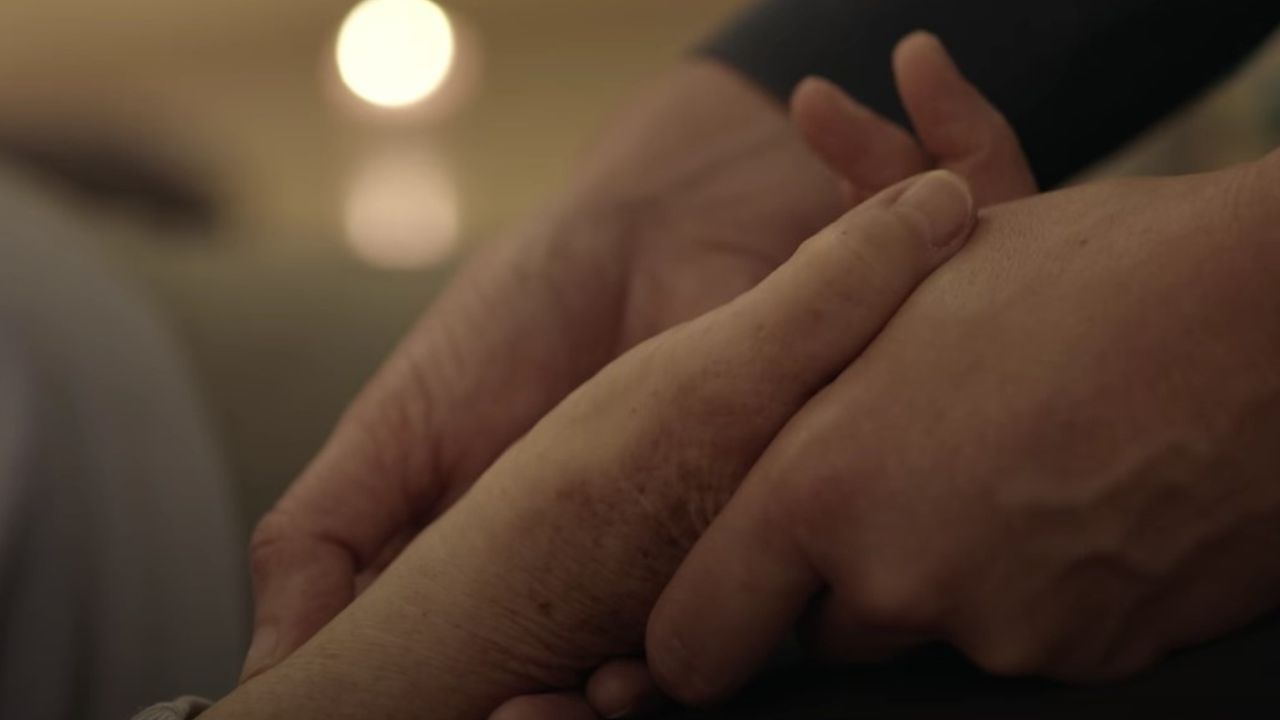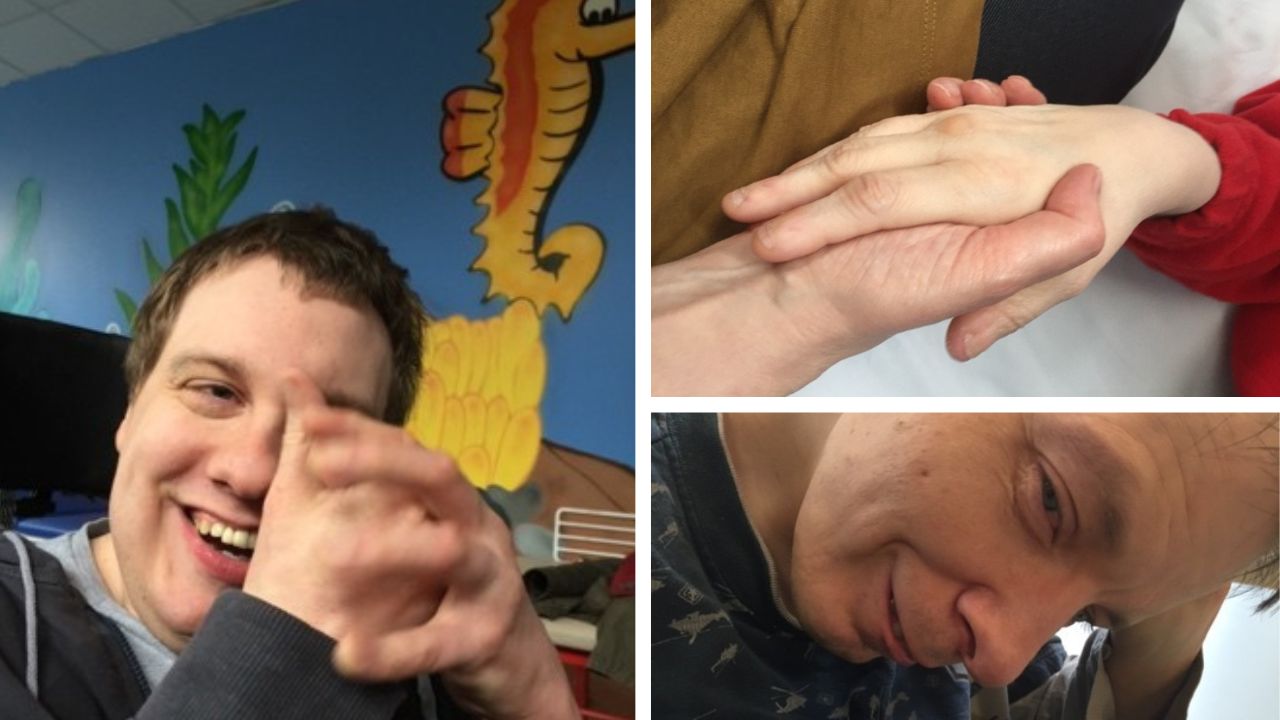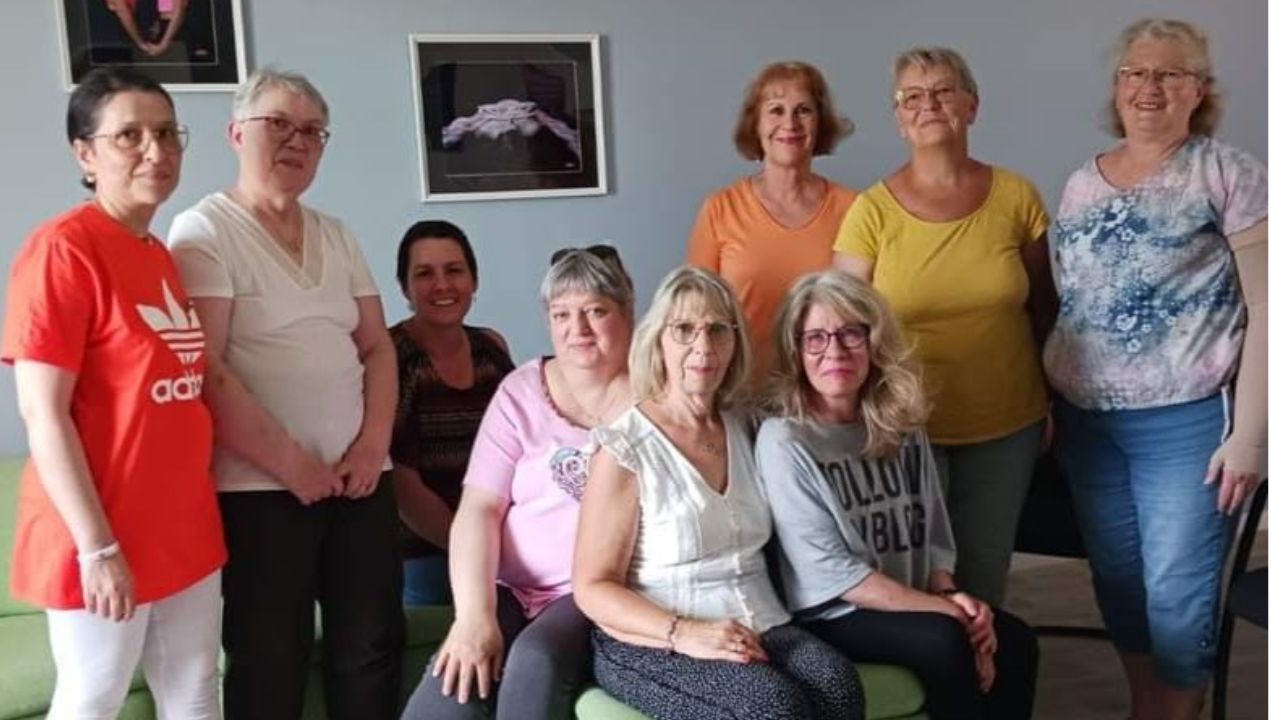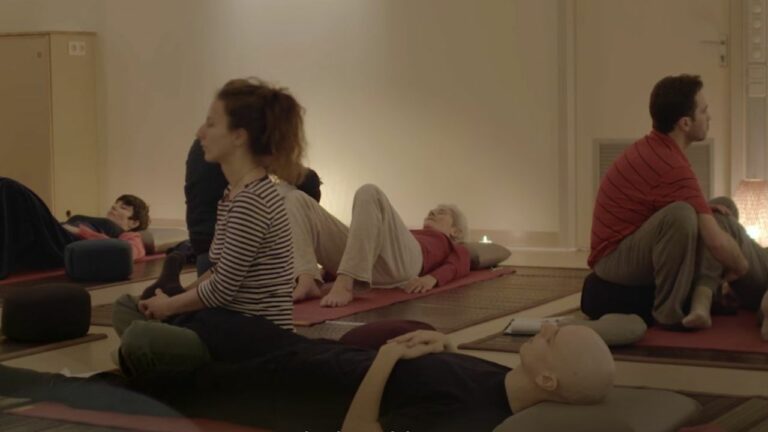
In the Spotlight
Yuichi Kawada is a pioneer of the art of Shiatsu in Europe. He shared his knowledge in several countries before opening his practice in Belgium. In 1990, he founded the Yoseido Shiatsu School in Brussels, where he has since trained many therapists.
His teaching is based on The Yellow Emperor’s Classic of Internal Medicine and the laws of transformation as expressed in the I- Ching. These are inexhaustible sources, which encourage the observation and interpretation of the imbalances of humans and the environment in which they exist.
Specialising in the study of the twelve main meridians and the eight curious vessels of traditional Chinese medicine, he teaches philosophical concepts of Oriental thought, which allows for a deeper understanding of the challenges of mankind
1. Shiatsu for Mental Health
For the past two and a half years shiatsu sessions have been offered by students in their third year of training at Master Kawada’s Yoseido Shiatsu school at the Sainte-Anne/Saint-Rémi clinic in Brussels for patients in the psychiatric ward. The sessions are carried out under the supervision of Yoseido school officials. Participation is voluntary and is only offered to patients who are deemed sufficiently stable from a psychiatric point of view. Members of the health care team accompany the patients before and after the sessions.
Patients particularly appreciate these sessions and often report discovering a new state of well-being.
We have started to pose questions about the nature of the body in psychiatry:
- The body of the patients to be cared for – in psychiatry, patients’ physical health is frequently neglected and this passage through the general hospital is a significant occasion
- The painful body – pain can be of psychosomatic origin, and conversely, a chronic painful illness can cause depression
- The body of the act – anorexia, self-mutilation, suicide attempts etc.
- The body to be forgotten – for example in drug addiction
- The body as a site of the enigma of symptoms – what is going on, since when and with what frequency?
Typically, the students spend about forty-five minutes with each patient. They might be experiencing such conditions as depression (sometimes at quite an advanced stage), schizophrenia, bipolarity, epilepsy and advanced alcoholism (often as a result of physical abuse). After the sessions, patients either feel very awake or completely relaxed, to the point of deep sleep with heavy snoring.
2. Shiatsu with Cancer Patients
Since 2015, the Yoseido Shiatsu School has collaborated with the King Albert II Institute of the Cliniques Universitaires Saint-Luc, a leading center specializing in the care of cancer patients in French-speaking Belgium. Shiatsu has been used as a supportive therapy for these patients and has been effective in reducing symptoms of pain, fatigue and anxiety.
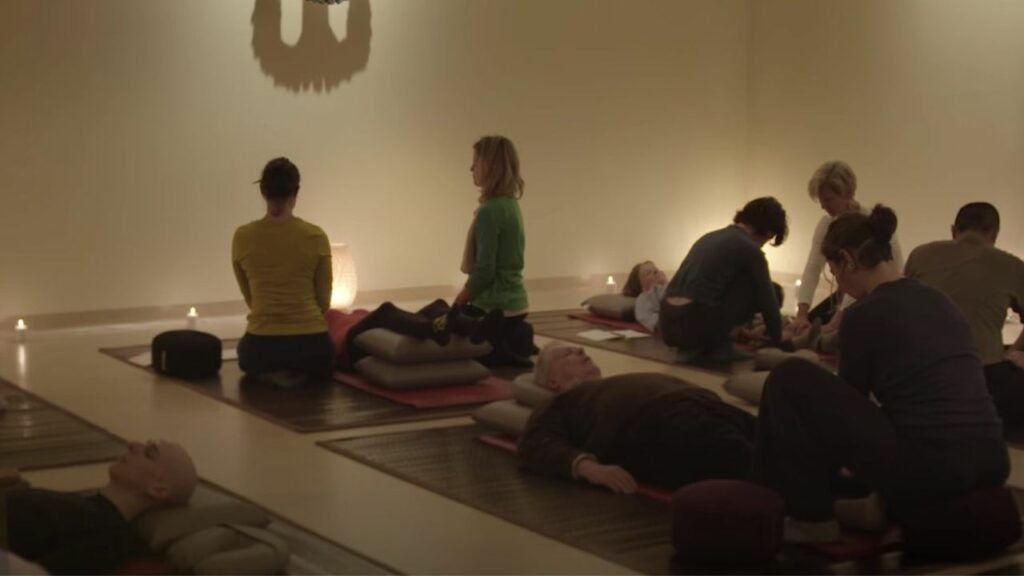
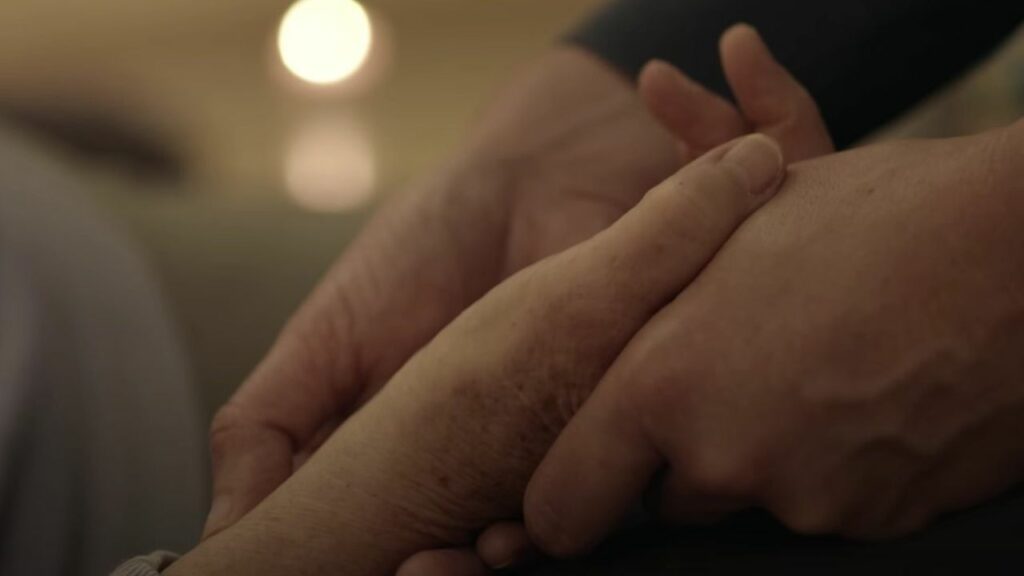
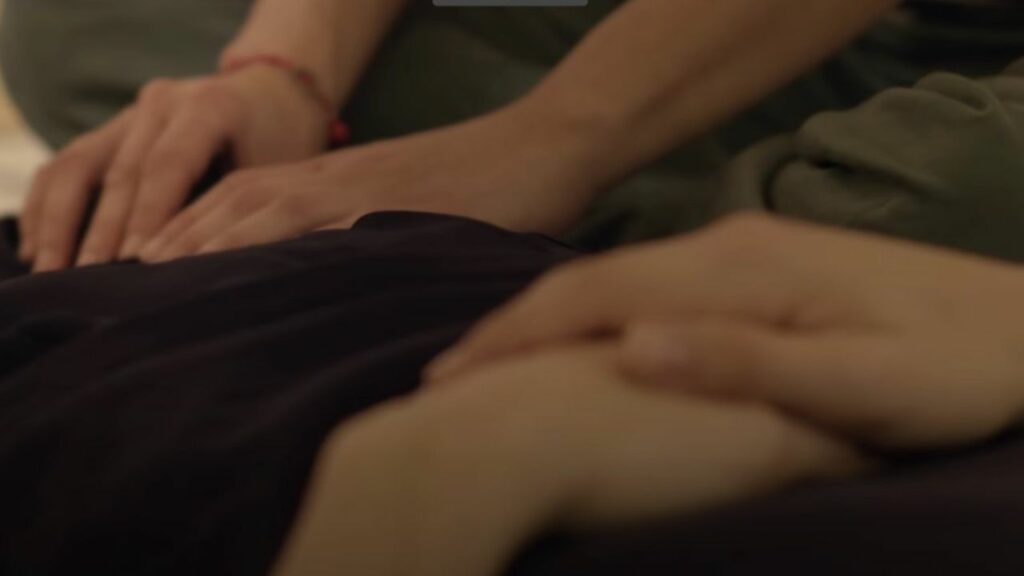

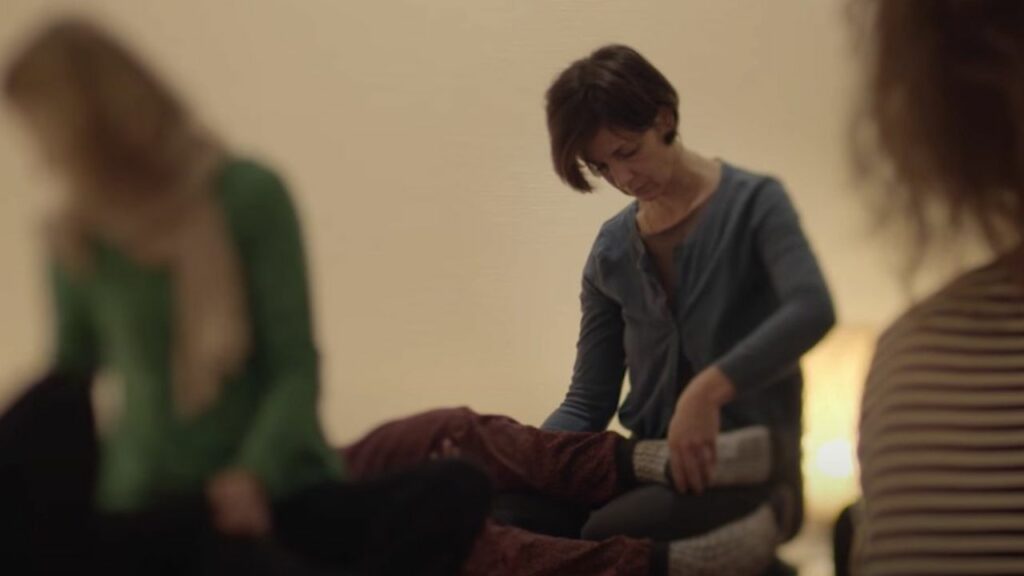
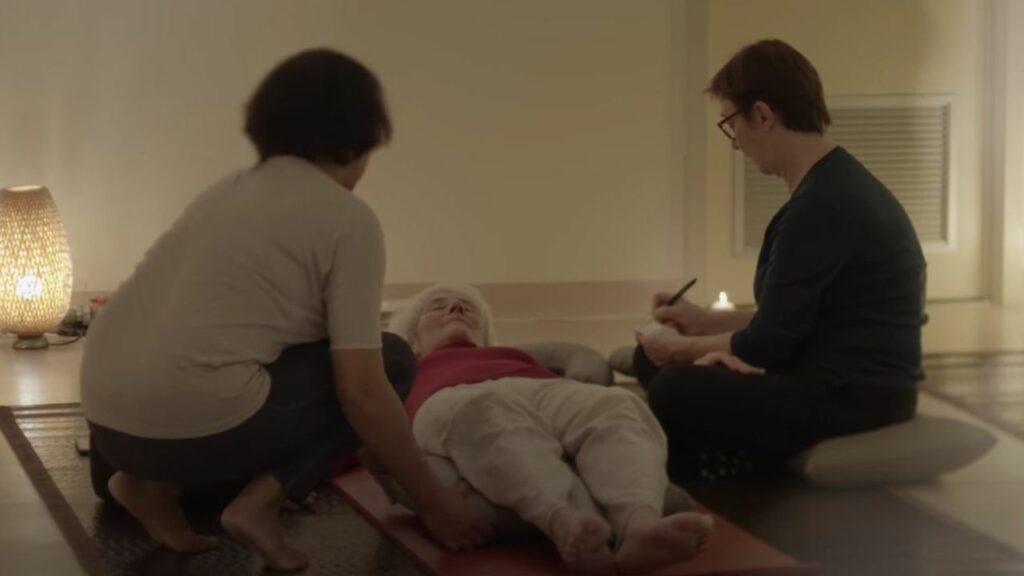
Cancer patients experience a wide range of physical and emotional symptoms as a result of both their illness and their treatment. Pain, fatigue and anxiety are common symptoms that can greatly impact a person’s quality of life. Conventional treatments such as medication and physiotherapy can be effective in managing these symptoms, but they often cause side effects and may not address the underlying causes of these symptoms. Complementary therapies, such as shiatsu, can be used in conjunction with conventional treatments to provide an additional layer of support for cancer patients.
Shiatsu is a non-invasive therapy that can easily be integrated into a cancer patient’s treatment plan. At Saint Luc hospital in Brussels, Shiatsu sessions are typically carried out by advanced students under supervision of teachers at Yoseido Shiatsu School. The sessions are usually 15 minutes long, and students are encouraged to use no more than 6 acupressure points, principally to nourish the Yin energy of the receivers.
One of the most promising benefits of shiatsu for cancer patients is its ability to reduce pain. Cancer-related pain can be caused by the tumor itself, but also by chemotherapy and radiation therapy. Shiatsu can help to reduce pain by stimulating the release of endorphins, the body’s natural pain-relieving chemicals. This can reduce the need for pain medication and improve a patient’s quality of life.
In addition to reducing pain, Shiatsu can also help to reduce fatigue. Cancer patients often experience fatigue as a result of the disease and the treatment they receive. Shiatsu can help to reduce fatigue by promoting relaxation and improving circulation. By improving circulation, shiatsu increases the delivery of oxygen and nutrients to the body’s cells, which helps to reduce fatigue and improve energy levels.
Anxiety is another common symptom experienced by cancer patients. Cancer patients may be anxious about their illness, treatment and prognosis. Shiatsu reduces anxiety by promoting relaxation and thus reducing stress. The gentle touch and soothing atmosphere of a Shiatsu session can calm the mind and reduce feelings of anxiety.
The philosophical concepts of Oriental thought allow for a deeper understanding
Yuichi kawada
of the challenges of mankind
